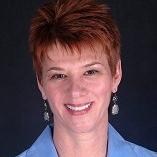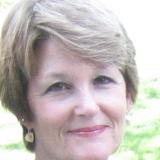Find a Therapist near Washington, DC
| Prev |
Find a Therapist in Washington, D.C. with GoodTherapy
It’s normal to experience mental health issues and relationship problems. Talking to a licensed therapist can help. Therapy can teach you more about yourself and your mental health concerns in a healing way. Many therapies are evidence-based and have been proven effective.
Since 2007, GoodTherapy has helped people like you connect with ethical, compassionate counselors and therapists. The therapists listed above, who practice therapy in Washington, are trained to protect client confidentiality and privacy. In keeping with our high membership standards, these mental health professionals are also committed to eliminating the stigma that keeps many people from seeking help.
If you are looking for a specific type of therapist, you can search for marriage or couples counseling in Washington, D.C. or find a child psychologist or family therapist in D.C. You can also connect with D.C. therapists who specialize in treating anxiety or depression. In addition, some therapists provide group therapy, which is typically a therapist-led session with multiple people.
Beliefs about how much therapy costs may deter some people from finding a therapist. It’s a good idea to contact therapists you’re interested in and ask about insurance, sliding-scale fees, payment plans, and other options to stay within your budget.
Rest assured there are qualified therapists in Washington who can treat a variety of concerns, including family conflict, relationship issues, anxiety, or depression. With our directory, the right therapist is easy to find.
List Your Practice on GoodTherapy
Are you a therapist or mental health professional looking for new ways to get referrals and market your practice in Washington? Keeping up to date with professional requirements and increasing your online presence are just two of the many benefits of joining GoodTherapy. Start connecting with clients and earning online continuing education credits today!
Mental Health Statistics in Washington, D.C.
Washington, D.C., the nation’s capital, is the 20th most populous city in the U.S. and a model for the healing potential of therapy. The District of Columbia has slightly lower rates of serious mental illness among adults than the national average, according to data from the Substance Abuse and Mental Health Services Administration (SAMHSA). While most (58.4%) do not receive treatment, 72.5% of adults who do—and 64.1% in the 17-and-under group—report improved functioning.
Rates of alcohol abuse and dependency among people ages 12 and up are higher in D.C. than nationally. About 55,000 D.C.-area residents in this group reported abusing or being dependent on alcohol in a 2013-14 SAMHSA survey.
According to SAMHSA, use of alcohol and illicit drugs decreased among youth ages 12-17 from 2010 to 2014. However, the percentage of youth in that same age bracket who perceived “no great risk” from using these substances increased. Although depression rates among youth are rising, the District, at 8.7%, remains well below the national average of 11%. Only 37% of adolescents receive treatment for the condition.
Self-reporting of attempted suicide by D.C. students has consistently been double the national average of 6.3%.
With nearly 3% of D.C. residents (and 1% of youth) testing positive for HIV, there is considerable need for education and mental health support on the topic.
References:
- Behavioral Health Barometer: District of Columbia [PDF]. (2015). Retrieved from https://www.samhsa.gov/data/sites/default/files/2015_District-of-Columbia_BHBarometer.pdf
- Department of Behavioral Health. (n.d.). Retrieved from https://dbh.dc.gov/
- District of Columbia Community Health Needs Assessment, Volume 1 [PDF]. (2013). Retrieved from https://doh.dc.gov/sites/default/files/dc/sites/doh/page_content/attachments/2nd%20Draft%20CHNA%20(v4%202)%2006%2004%202013%20-%20Vol%201.pdf
- QuickFacts: District of Columbia. (2018). Retrieved from https://www.census.gov/quickfacts/fact/table/dc,US/PST045217




